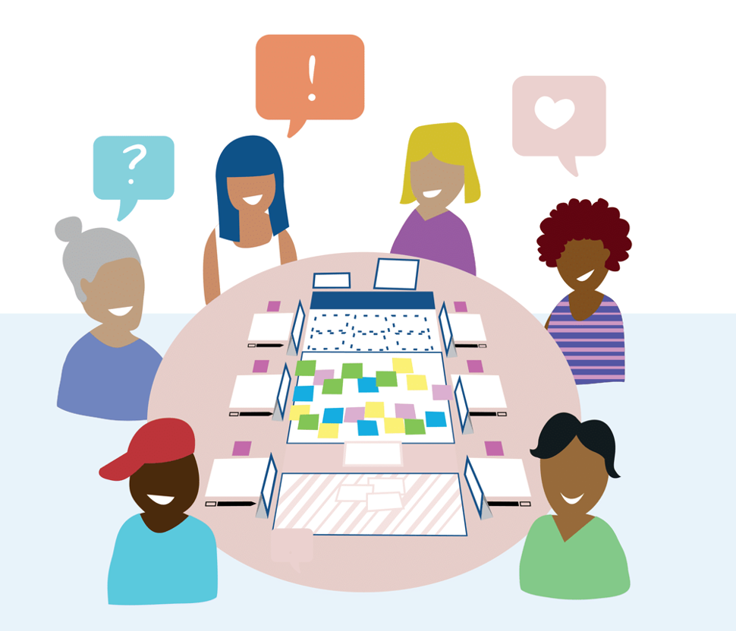Tools by CO-CREATE
Article
|Published
The CO-CREATE team has through out the five year project, developed several tools intended to support policy-makers, civil society and advocacy organisations, researchers, educators, health professionals, the media, and above all young people wanting to explore the issues in further depth.
Policy index scores on health
The CO-CREATE team has produced both a set of country snapshots and two policy indexes that offer a closer look at the policy status in each of the 30 European countries. The tools can be used for benchmarking policies and for creating national policy index scores. They can also be used to assess progress in national policy actions and compare between countries.
The policy indexes are produced by assessing implemented policies across each area of the NOURISHING and MOVING frameworks against aspirational, evidence- based benchmarks or standards that assess policy design. The standards are aspirational in that they do not measure countries against current best practice – because we know that current best efforts to prevent NCDs are insufficient. The overall policy index results rate countries in five categories, from poor to excellent.

Dialogue Forum tools
In order to create a space where young people can more easily contribute and engage in policy making, CO-CREATE set out to produce a set of guidelines and protocols for physical and digital forums with young people. The tools include a Guidebook giving instructions on organizing a Dialogue Forum, plus two sets of instructions for organizing in-person Physical Dialogue Forums and online Digital Dialogue Forums.

A Systems Thinking Activity Toolkit
This Toolkit is developed by youth for youth to learn about policy ideas through engaging activities. Its goal is for participants to find issues in their community and develop ideas on how to change them.
The Toolkit’s method is comprised of three engaging activities to elaborate, examine, and get broader perspectives on the idea.

Systems mapping
In order to make a systems map, young people worked in groups to describe the factors they believed contributed to diet and physical activity. This shows how physical, digital, or commercial environments may influence food choices or motivation to exercise. These interwoven factors can demonstrate what the participants considered important, and this in turn would help them to make suggestions about potentially effective responses to encourage healthier eating and increased physical activity.
‘Group model building’ uses a live, web-based system mapping software. In total, 257 young people took part in group model building sessions, to produce the 20 maps that were amalgamated into one ‘master’ map, which shows the factors identified by the participants to influence body weight. The findings were very broadly similar between countries.

Systems Dynamics Tool
The CO-CREATE team has developed a systems dynamics tool that uses computer simulation modelling based on systems thinking and control theory. It helps explore the short- and long-term impact that youth-generated policy ideas may have on adolescents’ overweight and obesity. By capturing human metabolism, body composition, physical activity environment, food environment, and mental wellbeing, the model shows plausible futures and interventions impact on adolescents’ overweight and obesity through different scenarios.
The model shows plausible futures and interventions impact on adolescents’ overweight and obesity through different scenarios. Rather than predicting future overweight and obesity rates, the purpose of this analysis is to learn how the direction of overweight and obesity trends may change under various configurations of action and inaction.

Systems Thinking Across Research (STAR) framework protocol
This is a proposed protocol which crystalises the lessons from CO-CREATE in taking a systems approach, and proposes a methodology to support researchers in designing systems-based research projects.
Youth Alliances protocol
A paper describing the experiences of recruiting and running alliances of young people. Includes descriptions of the recruitment and engagement processes undertaken in the CO-CREATE project with 15 Youth Alliances involving 199 adolescents aged 15-19 years in five countries.


